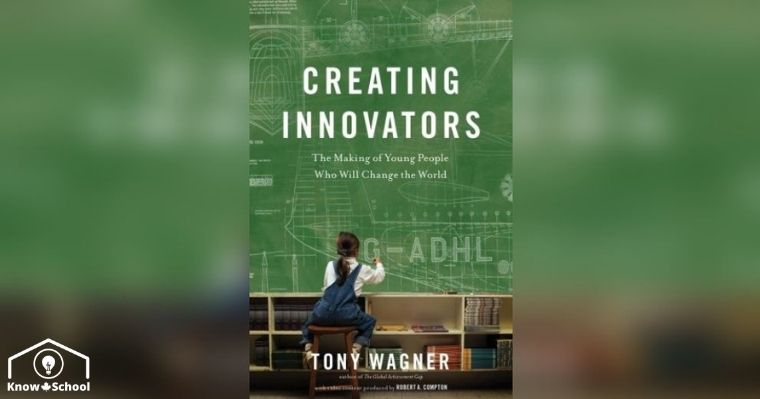Creating Innovators: The Making of Young People Who Will Change the World by Tony Wagner
“My advice to students—and to my own children—is to study what interests them the most; to excel in fields in which they have the most passion and ability; to change the world in their own way and on their own terms.”
That is the advice that Vivek Wadhwa suggests in one of the passages of this book.
Wagner interviewed dozens of educators and students in the exploration of this topic. I took tons of notes while reading. Here are a few of the passages that stuck out for me. Here’s one from Mitchel Resnick . . .
“Here at the lab, we take our inspiration from the ways people learn in kindergarten, where kids have opportunities to create, design, and build collaboratively. . . People tend to dichotomize approaches in education. The teacher is either telling students what to do, or standing back and letting them figure it out. I think that’s a false choice: The issue is no structure versus no structure, but rather creating a different structure.”
Wagner encourages us all to look for a new way of learning and teaching. He writes, “Most of us teach in the ways we have been taught. It takes conscious effort and a good deal of trial and error to alter this pattern.”
Here is something to think about when it comes to testing and assessing student ability.
“What you care about is what they can do with what they know. We cannot assess a child’s ability to ask a good question, apply what they’ve learned, or create new knowledge on the basis of the cheap tests we use.
Another essential part . . . is requiring all students to have a digital portfolio where they collect work that is evidence of progressive mastery of the skills like critical thinking, oral and written communication, collaboration, and creative problem solving.”
I know that as homeschoolers, we are probably doing these things. The personal attention we can give our children gives us the ability to follow their passions. Hopefully, you’ve been keeping a collection of their academic achievement. If not, make sure you start now.
If we want to change things for the students we can’t reach, we could follow Wagner’s advice here . . .
“I want you to pressure . . . governments to create an assessment system aligned with the outcomes that matter the most. To do that, we will need to use an auditing strategy, where we test sample population every few years—instead of every child every year.”
Imagine how public education could be transformed with a little pressure from parents?
Until then, let’s continue to champion homeschooling.

